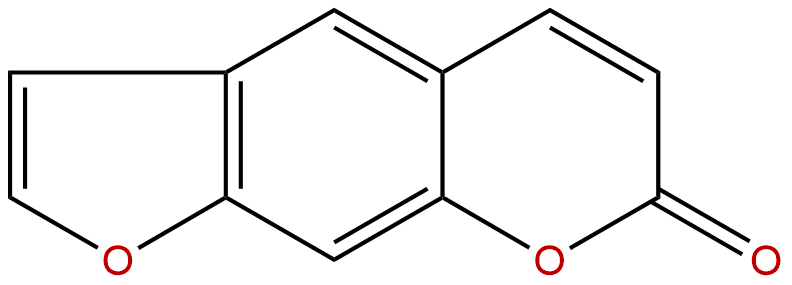
PsoralenCAS No.:66-97-7
|
||||||||||
 |
|
|
||||||||

| Catalogue No.: | BP1173 |
| Formula: | C11H6O3 |
| Mol Weight: | 186.166 |
Product name: Psoralen
Synonym name: Ficusin
Catalogue No.: BP1173
Cas No.: 66-97-7
Formula: C11H6O3
Mol Weight: 186.166
Botanical Source: Psoralea corylifolia, Ficus salicifolia, Heracleum leskovii, Ruta chalepensis, Dictamnus hispanicus, etc. Found in common vegetables, e.g. parsnip, celery esp. if diseased
Physical Description: Powder
Type of Compound: Coumarins
Purity: 95%~99%
Analysis Method: HPLC-DAD or/and HPLC-ELSD
Identification Method: Mass, NMR
Packing: Brown vial or HDPE plastic bottle
Storage: Store in a well closed container, protected from air and light. Put into refrigerate or freeze for long term storage.
Whenever possible, you should prepare and use solutions on the same day. However, if you need to make up stock solutions in advance, we recommend that you store the solution as aliquots in tightly sealed vials at -20℃. Generally, these will be useable for up to two weeks.
The product could be supplied from milligrams to grams, up to kilograms
Inquire for bulk scale.
Descriptions:
Psoralen crosslinking between human immunodeficiency virus type 1 RNA and primer tRNA3(Lys).[1]
Psoralens and UVA light selectively inhibit binding to the higher-affinity EGF receptors, an effect analogous to that of the phorbol ester tumor promoters, since EGF is a growth-regulatory peptide, the ability of psoralens and UVA light to inhibit EGF binding may underlie the biologic effects of these agents in the skin.[2]
Psoralen induces DNA adducts are substrates for the base excision repair pathway in human cells.[3]
Psoralen induces a persistent intracellular DNA damage at a specific site and to afford prolonged transcription inhibition.[4]
References:
[1] Skripkin E, Isel C, Marquet R, et al. Nucleic Acids Res, 1996, 24(3):509-14.
[2] Laskin J D, Lee E, Laskin D L, et al. P Natl Acad Sci U S A, 1986, 83(21):8211-5.
[3] Couvéprivat S, Macé G, Rosselli F, et al. Nucleic Acids Res, 2007, 35(17):5672-82.
[4] Guieysse A L, Praseuth D, Giovannangeli C, et al. J Mol Biol, 2000, 296(2):373-83.
[5] Sawut N, Yang Y U, Halik S. Modern Chinese Med, 2012, 14(10):16-19.
HPLC of Psoralen
